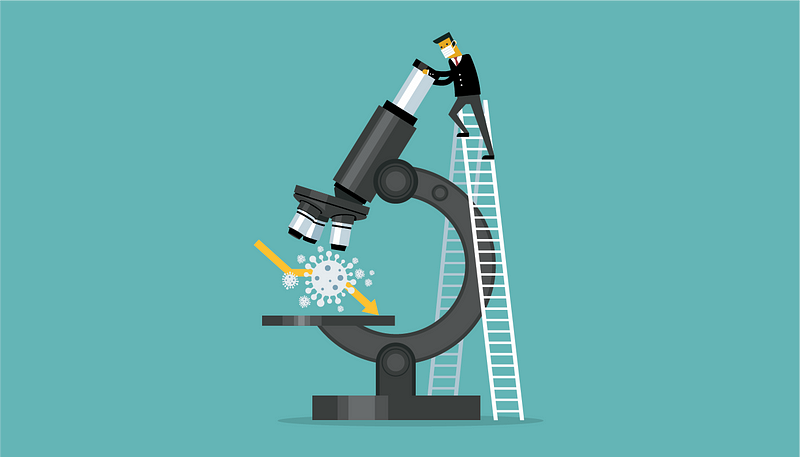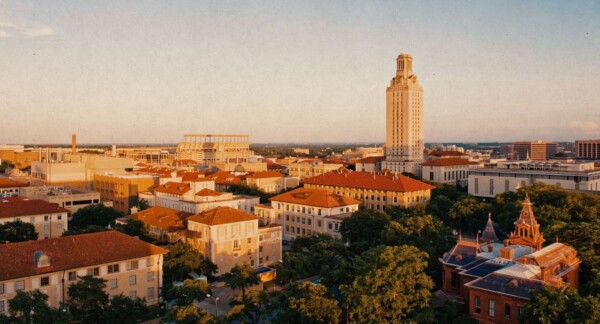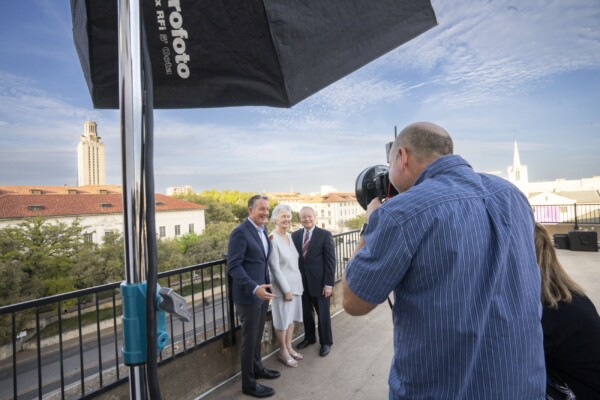COVID-19 Under a Business Microscope
As the globe continues to tackle a historic health threat, Texas McCombs researchers are studying business, drug approvals, and more.

With the coronavirus outbreak’s exponential spread claiming millions of lives globally — and hundreds of thousands in the United States — scientists have turned their attention to this historic health threat.
At Texas McCombs, researchers from many disciplines have also focused their efforts on addressing the challenges posed by COVID-19.
Below, we’ve collected a list of their published and forthcoming research highlighted both here on Big Ideas and in research journals:
Facing COVID-19, Some Businesses Should Reopen Before Others
During a pandemic, research shows not all locations ought to be treated the same. Avinash Collis, assistant professor of information, risk, and operations management, wanted to provide policymakers with a framework for looking at both costs and benefits so they could follow a more data-driven approach.
New Era Requires New Approach to Drug Approvals
With a coming flood of new drugs to fight COVID-19, a study suggests innovative ways for the Food and Drug Administration to speed up the approval process. Francisco Polidoro Jr., associate professor of management, has a suggestion: Don’t look at innovative new drugs through old lenses.
Using Moral Imagination to Fight the Coronavirus
Thinking about others can help us overcome COVID-19. Robert Prentice, professor and chair of the Department of Business, Government, and Society and faculty director of the Ethics Unwrapped program in the Center for Leadership and Ethics, explains how selfishness has threatened lives and what can be done to stop it.
In a Global Crisis, Business Redundancy Can Be Efficient
Building strategic redundancy into your operations can help you survive an unexpected disruption — like a pandemic. Francisco Polidoro Jr., associate professor of management, suggests how companies can fortify their operations against unforeseeable events.
How Childhood Adversity Shapes Susceptibility to COVID-19 Scams
The paper by Adrian Ward, assistant professor of marketing, and doctoral student Tito Grillo examines how inequalities experienced during childhood (for example, growing up in adversity or in a privileged environment) are predictive of adults’ susceptibility to COVID-19 scams.
Interdependence and the Cost of Uncoordinated Responses to COVID-19
Using mobility data from mobile phones, social network connections from Facebook users, and shelter-in-place policies across the country, assistant professor of information, risk, and operations management Avinash Collis and co-authors show how policies in one region affect social distancing and mobility behavior in neighboring and distant regions.
All Things Equal? Heterogeneity in Policy Effectiveness Against COVID-19 Spread in Chile
During the early stages of the COVID-19 pandemic, Chile implemented small-area lockdowns that were largely effective in reducing the number of new cases, but they had mixed results for different populations. Mainly due to varied compliance, these lockdowns reduced contagion in high-income areas but were ineffective in lower-income municipalities, according to research by Magdalena Bennett, assistant professor of information, risk, and operations management.
This study by Yan Leng, assistant professor of information, risk, and operations management, shows that the evolution of misinformation during COVID-19 on Chinese social media platform Weibo follows an issue-attention cycle, pertaining to topics such as city lockdown, cures and preventive measures, school reopening, and foreign countries. Sensational and emotionally reassuring misinformation characterizes the whole issue-attention cycle, with misinformation on cures and prevention flooding social media.


